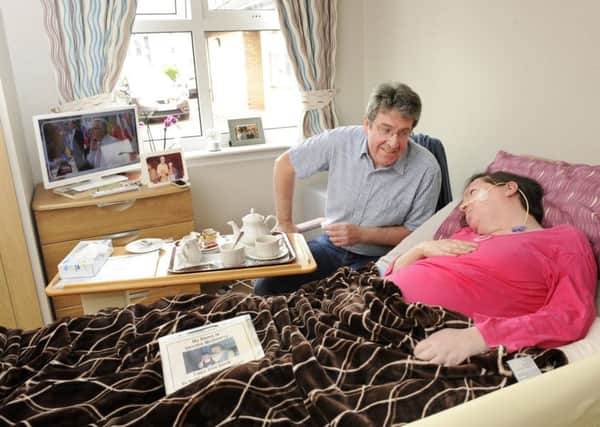Scots with neurological conditions still not getting required care


A new report released today by the Sue Ryder charity reveals nine of Scotland’s 14 health boards do not have a neurological services plan.
The charity, which provides hospice and neurological care, says many people with conditions such as motor neurone disease, Parkinson’s disease and sudden brain injury, are left struggling to get specialist care, whether in their own home or a care home.
Advertisement
Hide AdAdvertisement
Hide AdWithout such specialist services – ranging from occupational therapy to speech therapy - the charity says people are suffering needlessly and unable to live full lives.
Six out of Scotland’s 14 health boards say they have no intention developing a neurological service plan with their authorities or health and social care partnership.
Furthermore, the updated report ‘Rewrite the Future’ shows only five out of the 14 health boards and five local authorities out of 32 have some kind of community service provision – despite the fact services are supposed to be being moved out of hospitals into the community.
Over 1,000 people with neurological conditions in Scotland are in care homes.
Pamela MacKenzie, director of neurological services and Scotland, at the charity is calling on the Scottish Government to create a coordinated strategy linking health and social care needs.
“Neurological conditions can strike anyone, at any time, having a massive impact on them and their families.
“Since our last report last year the Scottish Government has started to take action: it is now working on a project to find out how many people in Scotland have a neurological condition, so that services can then be designed to meet their need.
“However, at this stage people with neurological conditions are not benefitting from integrated health and social care - there’s very little meaningful integrated specialist care and few plans to change this.”
Advertisement
Hide AdAdvertisement
Hide AdLast year the charity highlighted uneven care distribution and said a number of younger adults were living in care homes with much older people. Minister for Public Health Aileen Campbell said: “Health and social care integration has placed a greater emphasis on effective care in community, where each integration authority must develop plans to meet the needs of everyone, including people with neurological conditions, in their area.
“We want to ensure that people living with neurological conditions have consistent access to the best possible care and support, which is why we have started the development of Scotland’s first national action plan on neurological conditions to help drive improvements.”